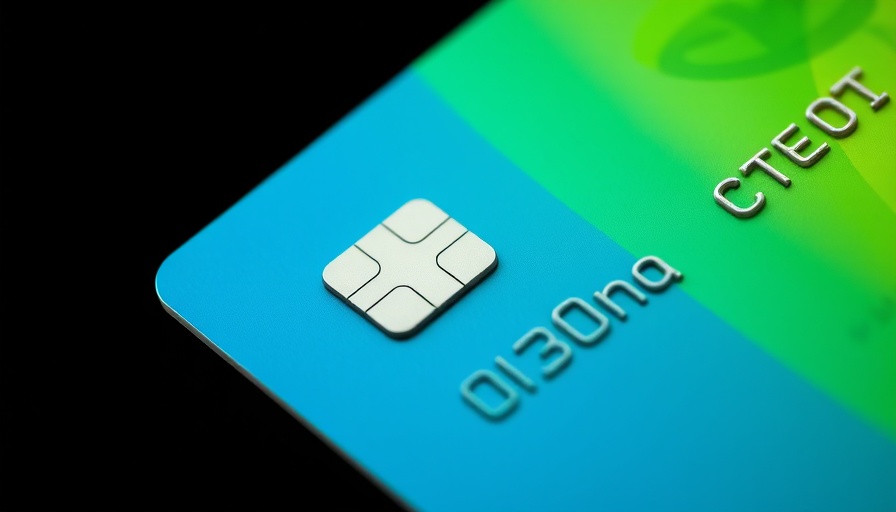
Paying Taxes with a Credit Card: Unlocking Hidden Financial Benefits
As tax season approaches in 2025, many taxpayers are exploring their options for paying Uncle Sam. One intriguing method involves using a credit card. While this may initially sound impractical due to potential fees, there are strategic ways to turn your tax payment into a financial opportunity, whether you’re looking to maximize rewards or manage cash flow effectively.
Evaluating the Viability of Credit Card Payments
Before diving into the nuances of credit card payments for taxes, it’s crucial to assess whether this method is suitable for your financial circumstances. If you usually pay your credit card balance in full each month, this could be a beneficial strategy. However, if you carry a balance, the high-interest rates typical of credit cards could outweigh any rewards you might earn.
The IRS allows credit card payments through authorized third-party processors such as Pay1040, ACI Payments, and PayUSAtax. Each processor will charge a convenience fee—typically ranging from 1.87% to 2.35% of the payment amount—making it vital to weigh potential processing costs against expected rewards.
Benefits of Using Credit Cards for Tax Payments
Using a credit card to pay your taxes can have several advantages:
- Rewards and Cashback: If you use a rewards card, you could earn points, cash back, or miles on your tax payments. For instance, some cards offer significant bonuses for new sign-ups or special rewards categories that can effectively reduce the costs associated with the transaction fees.
- Meeting Spending Requirements: Making a payment with a credit card may help you quickly meet the spending threshold for introductory bonuses, making it a smart move if you’re shopping for new credit cards.
- Overcoming Cash Flow Challenges: Paying with a credit card allows for flexibility; you can extend the period before payment is due while avoiding penalties for late payments by confirming transactions immediately.
Weighing the Costs and Risks
Despite the upside, several risks must be acknowledged:
- Processing Fees: The convenience fees tied to credit payments can add up quickly. If your tax bill is substantial, the fees incurred might offset the benefits received from points or cash back.
- Impact on Credit Score: A large tax payment can spike your credit utilization ratio, potentially lowering your credit score. Maintaining a balanced credit profile is crucial for future financial endeavors.
- Interest Incurred: If you cannot pay off your balance promptly, the high-interest rates on credit cards can lead to significantly higher overall costs, negating the benefits of rewards.
Timing is Everything
To maximize the potential benefits and minimize costs, consider timing your payments strategically. Aligning your tax payment with your credit card’s billing cycle can provide you more time to pay the balance before accruing interest. Moreover, paying close to the due date could reduce the overall financial burden. Utilize tools that provide reminders for payment deadlines, ensuring you remain proactive instead of reactive.
Identifying the Best Credit Cards for Tax Payments
Choosing the right credit card to use for your tax payments is crucial. Here are top contenders:
- Chase Sapphire Preferred® Card: Offers significant rewards for spending and a lucrative sign-up bonus, which can help offset any transaction fees associated with tax payments.
- American Express® Gold Card: With enhanced points for dining and groceries, this card offers value beyond just tax payments.
Conclusion: Is Paying Taxes with a Credit Card Right for You?
Ultimately, whether to pay your taxes with a credit card is a decision that hinges on individual financial habits. If you’re disciplined enough to manage your credit card balances without incurring debt and are strategic about timing your payments, you can effectively leverage credit cards for meaningful financial gain during tax season. However, for those who risk falling into high-interest debt or excessive fees, it may be wiser to pursue other payment methods, such as direct bank transfers or debit cards, which often carry lower fees.
As you plan for the upcoming tax season, weigh the benefits against the risks, and make a decision that aligns with your financial goals!
 Add Row
Add Row  Add
Add 



 Add Row
Add Row  Add
Add 
Write A Comment